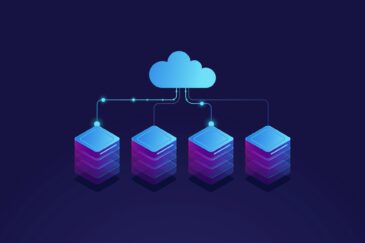Comparing On-Premises vs. Cloud Deployment for Oracle EBS

- March 22, 2023
- Jhansi Rani
- 0
Oracle E-Business Suite is a suite of business applications that help organizations automate and manage their business processes. It is available in both on-premises and cloud deployment models.
Cloud deployment of Oracle EBS, on the other hand, allows organizations to avoid the upfront costs of hardware and software infrastructure and to pay for the system on a subscription basis. This model offers more flexibility in scaling the system up or down based on changing business needs. Cloud deployment also offloads the cloud provider’s responsibility for system maintenance and upgrades, freeing up IT resources to focus on other tasks. Cloud deployment is recommended for organizations that need to scale their business processes quickly, want to avoid significant upfront investments in IT infrastructure, or have limited IT resources.
Deploying Oracle EBS on-premises or in the cloud depends on an organization’s specific needs and priorities. Both deployment models offer advantages and trade-offs, and organizations should carefully evaluate their options before deciding.
Migrating Oracle EBS to the Cloud
Evaluate your current system
Before migrating Oracle EBS to the cloud, evaluating your existing system to understand its configuration and any existing customizations is essential. This will help you plan for the migration and identify any potential challenges or issues that may arise. You should also assess the data and integrations that need to be migrated, including any dependencies or third-party systems that may be affected.
Choose a cloud deployment model
Several cloud deployment models exist, including public, private, and hybrid clouds. Each model has its benefits and drawbacks, and the best choice will depend on your organization’s specific needs and requirements. Public clouds are typically the most cost-effective and scalable but may not offer the security or control some organizations require. Private clouds offer greater control and security but can be more expensive and complex. Hybrid clouds offer a mix of public and private cloud resources, allowing organizations to balance cost and control based on their needs. When choosing a cloud provider, ensuring they support Oracle EBS and have experience migrating enterprise applications to the cloud is vital.
Prepare your infrastructure
Once you’ve chosen a cloud deployment model and provider, you’ll need to ensure that your existing infrastructure and data meet the requirements for cloud deployment. This may involve migrating your data to a new database, configuring network connectivity between your on-premises system and the cloud, and optimizing your system for cloud performance. Depending on the cloud provider you choose, there may be specific requirements or tools that you need to use to prepare your infrastructure for migration.
Plan your migration
The migration process will involve several steps, including copying data from your on-premises system to the cloud, configuring the new environment, and testing and validating the migrated system. It’s crucial to develop a detailed migration plan that outlines each process step, including any dependencies or prerequisites. You should also plan for any downtime or interruptions to business operations during the migration and develop a rollback plan in case any issues arise. Depending on your organization’s needs, you may migrate your entire Oracle EBS system at once or migrate specific modules or functions in phases.
Test and validate
Once your migration is complete, you’ll need to thoroughly test and validate your migrated Oracle EBS system to ensure that it’s functioning correctly and that all data and integrations have been migrated successfully. This will involve testing each module and function of the system and verifying that all data is accurate and up-to-date. You should also test any integrations with third-party systems or applications to ensure they work correctly. Testing and validation are critical to ensuring a successful migration and can help you identify any issues that must be addressed before your system goes live in the cloud.
Data Migration from On-Premise to Cloud
Data migration is critical to ensure a smooth transition while migrating Oracle EBS to the cloud, as it involves moving data from your on-premises Oracle EBS system to a cloud environment. Fortunately, Oracle and other third-party providers offer several Oracle data migration tools, but your specific tool will depend on your migration requirements and the needed features.

Services
Products
Company
Copyright © 2024 Rite Software Solutions & Services LLC. All rights reserved.



